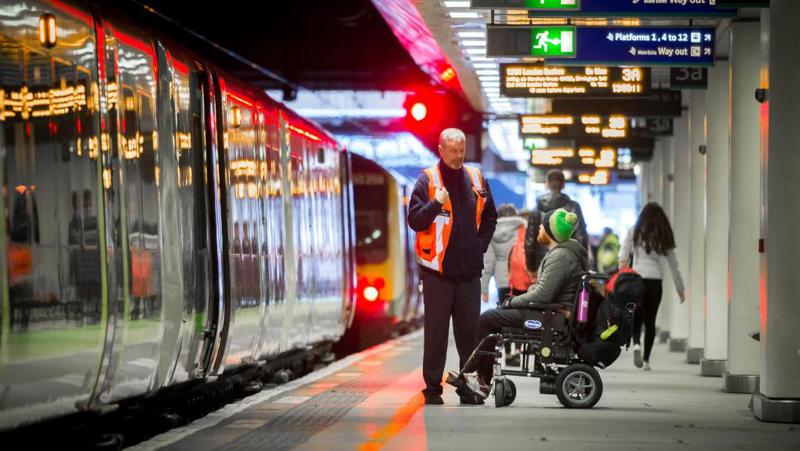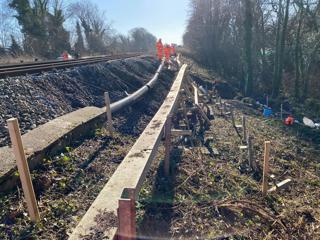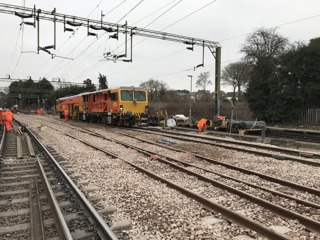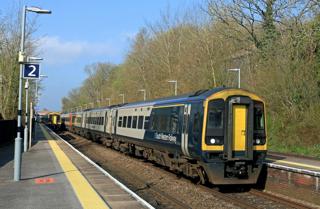
The Government must produce a new inclusive transport strategy within 12 months that’s backed by a costed plan that will “close the gap between rights and reality”.

The Government must produce a new inclusive transport strategy within 12 months that’s backed by a costed plan that will “close the gap between rights and reality”.
That’s the call from MPs in the Transport Select Committee (TSC) who have published a report about public transport accessibility (Access denied: rights versus reality in disabled people’s access to transport).
As part of the strategy, TSC said it “must include setting concrete timescales for achieving independent accessibility across the rail network, steps to make policy and decision-making processes more responsive to accessibility, including when decisions are made about staffing levels, and proactive quality assurance of disability awareness training”.
MPs said previous accessibility failings across all forms of public have got worse since COVID, and the burden on individuals to hold operators and authorities to account was “too great”.
Their report found that 65% of 825 people surveyed had faced difficulty on trains either always, most of the time or often. That figure went to nearly 85% when including those who answered “occasionally”.
The report quoted people who said they’d missed important meetings while they wait for a ramp, had to crawl off trains or had their life and wellbeing put in danger while being assisted.
It also noted that the target of the 2018 Inclusive Transport Strategy – to create a transport system offering equal access for disabled people by 2030 – will be missed.
MPs acknowledged that funding to achieve step free access on the rail network was an issue, but also said: “There are exemptions in force across the rail network that mean operators are not obliged in specific respects to provide accessibility: these include level boarding between platform and train, toilets on certain trains, and side displays on certain trains.”
They continued: “A consistent long-term plan for deploying resources is required.
“There is at present no Government commitment to or strategy for introducing level boarding across the network; the 2018 Inclusive Transport Strategy committed only to the very modest action of working with an operator which had introduced platform gap fillers to share its experience across the industry.”
TSC described the Access for All funding through competitive bidding a “piecemeal approach arguably at odds with a culture of accessibility for all”.
MPs want the Government to commit to setting out a road map within 12 months that details how it will meet its timescales for achieving independent accessibility across the rail network.
“This road map must inform the rolling stock, station and network enhancements strategies of the Department and, when it is operational, Great British Railways,” the report said.
Speaking about Passenger Assist services, MPs described the performance as “patchy”, and said 10% of users who were supposed to be met by staff to assist them on or off a train reported nobody turning up.
The report said there was universal acknowledgment that more needed to be done and there were “too many unacceptable failures”.
Operators’ representatives and sector bodies also “tended to be positive about the trajectory of their sector’s accessibility performance and confident for the future, noting the work they have undertaken to improve their performance and corporate understanding”.
However, disabled people told MPs they felt there was a lack of cultural leadership and understanding in the rail industry, with TSC wanting the government to collect comprehensive data on not meeting accessibility obligations, similar to the aviation industry.
TSC said the establishment of Great British Railways (GBR) was also an opportunity to “fix accessibility as a core goal and responsibility of the railway”, noting that a requirement set out in the February 2024 draft Rail Reform Bill for GBR’s licence to include a specific accessibility condition, was not in the current proposals.
MPs also said staffing levels must not affect access and inclusion, and that training must be of a guaranteed standard with an expert unit to review existing packages after hearing about a lack of staff or attitudes that make people unwilling to travel.
The report comes days after TSC chair Ruth Cadbury wrote to Rail Minister Lord Hendy asking whether statutory duties for the consideration of freight, accessibility, the environment and wider benefits (economic and social) will form part Great British Railway’s (GBR) licence.
MPs noted that one paragraph of the consultation document (A railway fit for Britain’s future) says GBR will be “subject to a substantively streamlined and simplified licence”, given it will operate both trains and infrastructure.
Responding to the report, Local Transport Minister, Simon Lightwood, said: “It’s clear that accessibility has been an afterthought in developing transport services and there is more to do to ensure everyone can travel easily and with dignity.
“That’s why we have clear ambitions for a transport network that works for all and have already worked quickly to put accessibility at the heart of our bus and rail reforms, as well as continuing work to make hundreds of train stations step-free and launched an accessible aviation expert group.
“We continue to work closely with a range of people, including disabled people, to help us develop our policies, and we will consider these recommendations carefully as respond as soon as possible.”
Login to continue reading
Or register with RAIL to keep up-to-date with the latest news, insight and opinion.


















Login to comment
Comments
No comments have been made yet.